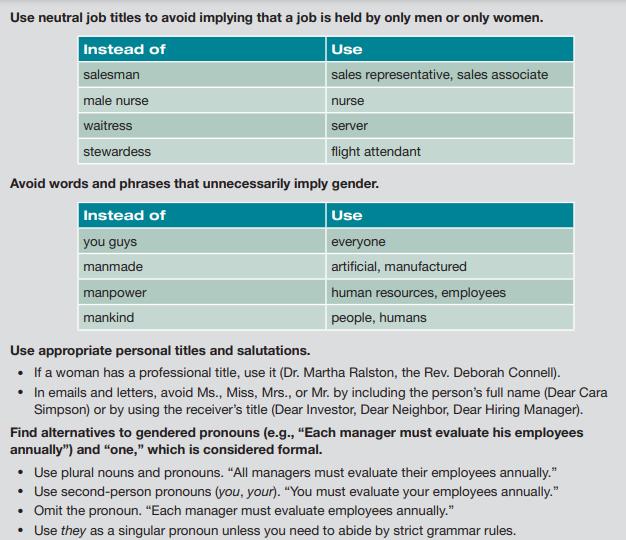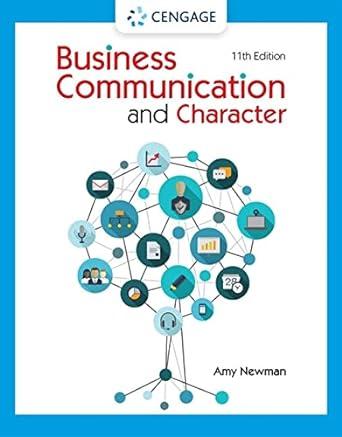In small groups, discuss how you feel about using inclusive language, for example, the advice in Figure
Question:
In small groups, discuss how you feel about using inclusive language, for example, the advice in Figure 12. Allow space for everyone to be honest and respectful of different points of view. For example, not everyone likes the idea of using they as a singular pronoun or being asked what pronouns they use, while others may feel that using gender-neutral pronouns is important. Still others may feel that pronouns they use are essential to their identity.
Figure 12

Fantastic news! We've Found the answer you've been seeking!
Step by Step Answer:
Related Book For 

Question Posted:





